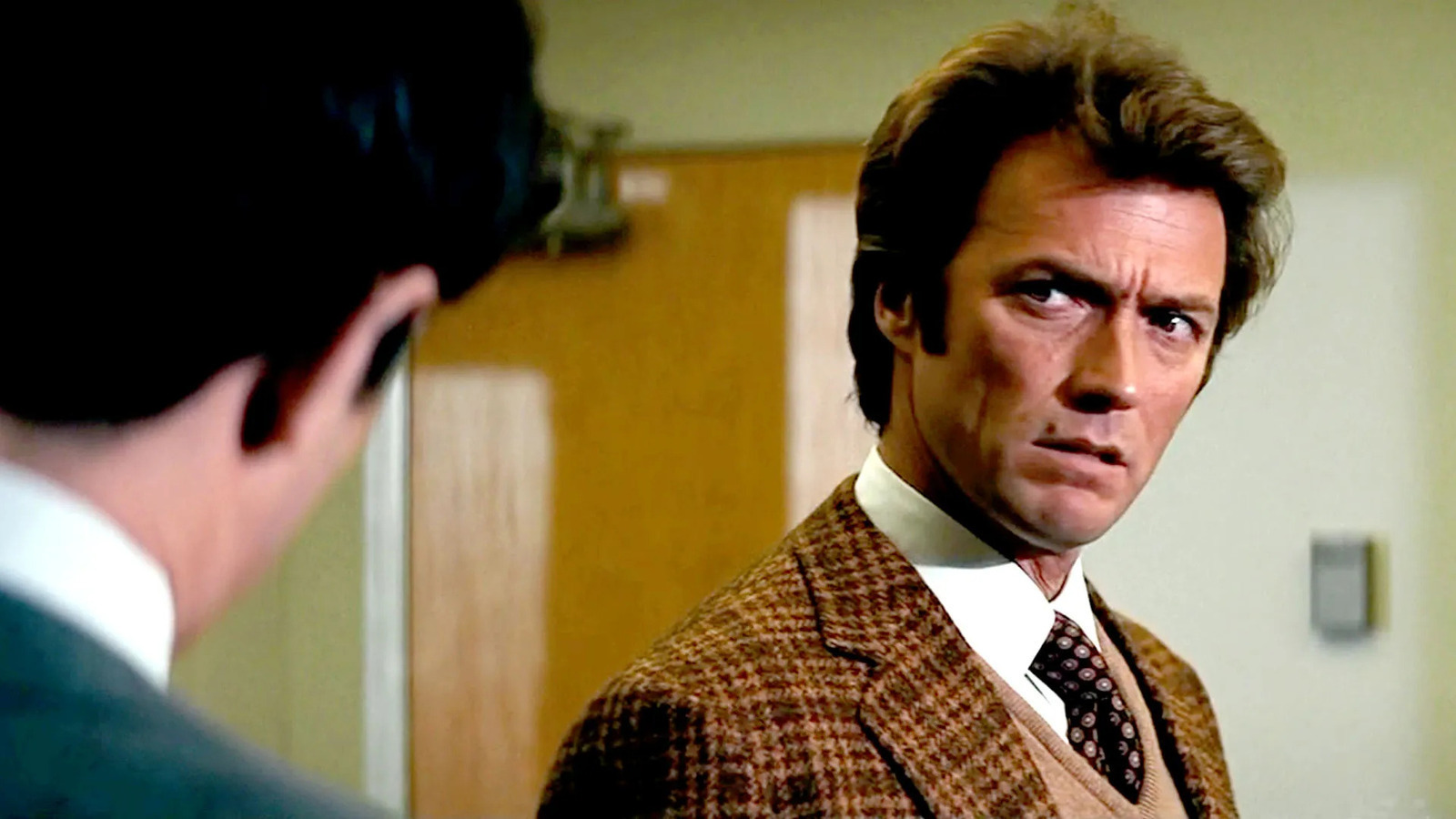Summary
Below is a ranked list of the Top 20 Dirty Harry quotes, complete with the context that made them unforgettable.
Harry was a renegade cop up against a criminal and bureaucratic system. He loves to carry his 44 magnum handgun.
https://en.wikipedia.org/wiki/Dirty_Harry
https://dirtyharry.fandom.com/wiki/Dirty_Harry
1 “Go ahead, make my day.”
Movie: Sudden Impact (1983)
Context: In a diner holdup, Harry dares a robber to move so he can legally shoo. It’s pure intimidation—and became a political slogan in the 1980s.
2. “Do you feel lucid? Well, do ya, punk?”
Movie: Dirty Harry (1971)
Context: After a shootout, Harry taunts a wounded robber, making the .44 Magnum legendary.
3. “A man’s got to know his limitations.”
Movie: Magnum Force (1973)
Context: Harry warns a corrupt cop about arrogance, a line that became a life lesson for fans.
4. “Nothing wrong with shooting, as long as the right people get shot.”
Movie: Magnum Force (1973)
Context: A debate on vigilante justice—Harry’s code versus rogue cops.
5. “You don’t listen too good, do ya, asshole?”
Movie: Dirty Harry (1971)
Context: A blunt, menacing retort during a tense standoff.
6. “When a man’s got to shoot, he’s got to shoot.”
Movie: The Enforcer (1976)
Context: Harry justifies his quick trigger during a hostage crisis.
7. “You’re out of bullets, and you know what that means—you’re s* outta luck!”**
Movie: The Dead Pool (1988)
Context: Harry outsmarts a villain in a showdown
8. “You’re a legend in your own mind.”
Movie: Sudden Impact (1983)
Context: Harry mocks a criminal’s inflated ego.
9. “This is a .44 Magnum, the most powerful handgun in the world, an...
10. The Legend of Clint Eastwood: From Spaghetti Westerns to Hollywood Icon
Few names in cinema command the same respect as Clint Eastwood. Born on 31 May 1930, in San Francisco, Eastwood rose from humble beginnings to become one of the most enduring figures in Hollywood History. Over a career spanning seven decades, he has worn many hats—actor, director, producer, composer—and left an indelible mark on global culture.
11. Early Life and Breakthrough
Eastwood’s early years were far from glamorous. . fter serving in the U.S. Army during the Korean War, he moved to Hollywood, where he endured years of minor roles and odd jjobs. His big break came in 1959 with the TV series Rawhide, where he played Rowdy Yates. But true stardom arrived in the mid-1960s when Italian director Sergio Leone cast him as “The Man with No Name” in the legendary Spaghetti Western trilogy:
- A Fistful of Dollars (1964)
- For a Few Dollars More (1965)
- The Good, the Bad and the Ugly (1966)
12. Dirty Harry and the Birth of a Cultural Icon
In 1971, Eastwood introduced audiences to Inspector Harry Callahan in Dirty Harry. The film’s gritty realism and moral ambiguity resonated with a society grappling with crime and social unrest. Harry’s catchphrases—especially “Do you feel lucky, punk?” and “Go ahead, make my day”—became part of the American lexicon. The role spawned four sequels and cemented Eastwood as the ultimate tough guy.
13. The Director’s Chair: From Action to Art
Eastwood wasn’t content to remain just an actor. His directorial debut, Play Misty for Me (1971), showcased his storytelling instincts. Over time, he evolved into one of Hollywood’s most respected directors, winning Academy Awards for Best Director and Best Picture for:
- Unforgiven (1992) – A revisionist Western that deconstructed the myths he helped create.
- Million Dollar Baby (2004) – A poignant drama that earned critical acclaim worldwide.
· Other notable works include Mystic River (2003), Letters from Iwo Jima (2006), and American Sniper (2014).
14. Cultural Impact and Legacy
Eastwood’s influence extends beyond film. His characters embodied rugged individualism, shaping perceptions of masculinity and just e. Politicians quoted his lines; fans imitated his squint and gravelly voice. In 1986, he even served as mayor of Carmel, California, proving his appeal wasn’t confined to the screen.
At 95 years old, Eastwood remains active, directing films like Cry Macho (2021) and Juror #2 (upcoming). His career is a testament to reinvention, resilience, and relentless creativity.
15. Why He’s a Legend
- Versatility: From gunslinger to jazz-loving director.
- Longevity: Over 60 years in the industry.
- Awards: Multiple Oscars, Golden Globes, and lifetime achievement honors.
- Cultural Reach: His lines and characters are deeply ingrained in American identity.
